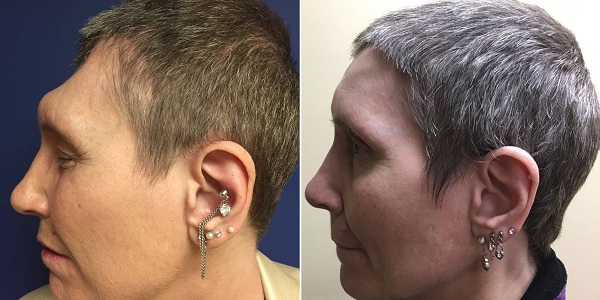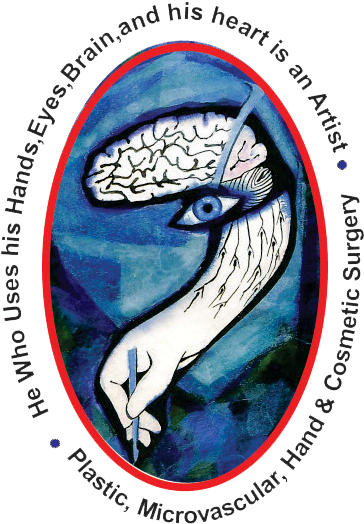Head & Neck Reconstruction
Tumors that affect the regions of the head and neck may require surgery. This may affect the way patients are able to speak and swallow. Reconstructive surgery allows for patients to achieve the best possible result to maintain as much function as possible.

Reconstructive plastic surgeons work all over the body, but in the head and neck region this may mean reconstructing:
Cheek, Nose, Eyelids, Forehead, Ears, Jaw, Chin, Tongue, Palate, Neck, Esophagus
Cancer defects and traumatic injuries of the head and neck can be devastating injuries. These frequently require a very aggressive and exacting type of reconstruction to return a person back to normal function. Frequently done in conjunction with other physicians, such as otolaryngologists and neurosurgeons, these techniques frequently require the use of microsurgical techniques, where tissue is taken from a separate part of the body and then reattached to reconstruct the deficits.
Scalp reconstruction is commonly performed because large defects can result from cancer or from intracranial surgeries. Intraoral cancer treatment frequently requires reconstruction for the large defects. Cancers of the mouth, tongue, jaw, and even the larynx require reconstructions. Defects can be reconstructed by using tissue taken from other body parts, including tissue from the thighs and the abdomen for soft tissue repair. Lower extremity bones can be used to rebuild the jaw.
Experience plays a significant role in these techniques. Physicians trained in microsurgery are the ones who should be doing these types of reconstruction.



